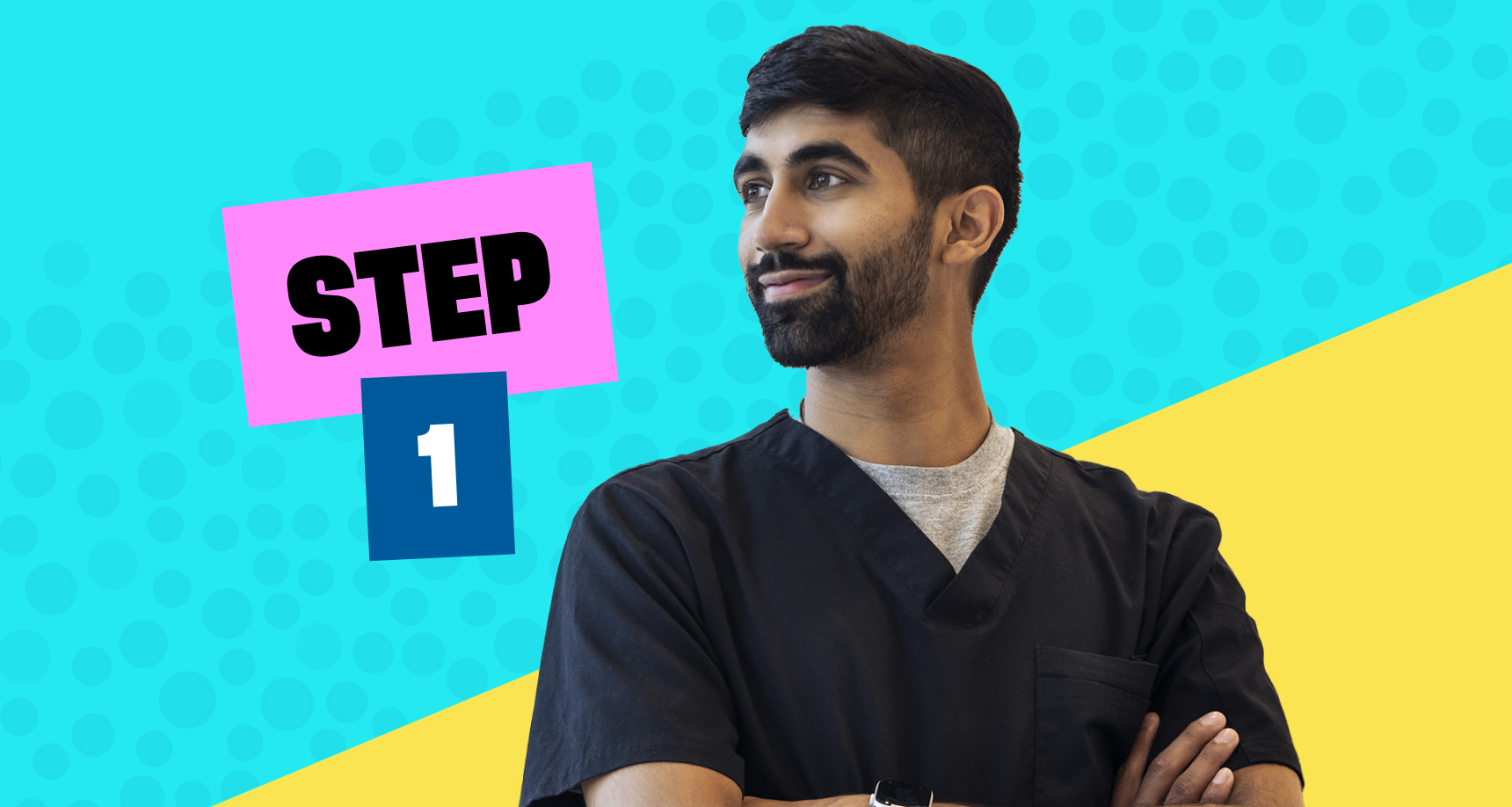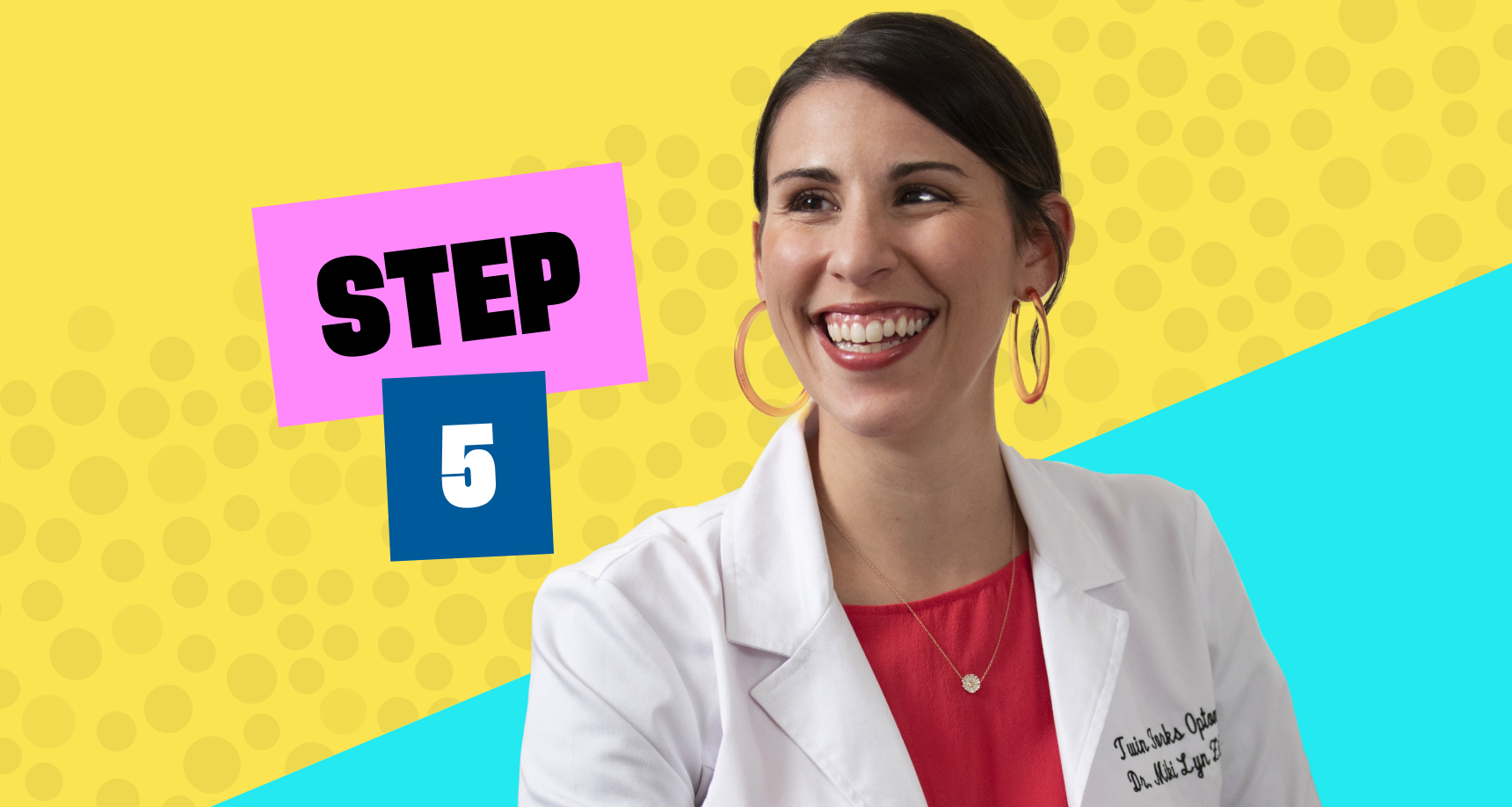If you pursue a private practice path, you have more career autonomy, especially when it comes to specializing in a certain area of optometry—like vision therapy or pediatrics. This also gives you more freedom in deciding your practice location and whether you want to practice solo or in a group.
Start living
your best life.
Your optometry career
can begin here.

Take prerequisite courses
Whether you’ve already decided to go to optometry school or are still thinking about it, it’s important to take the necessary prerequisite courses. While every school’s requirements vary, you can expect basic STEM courses to be required, including:
-
- Anatomy
- Biochemistry
- Calculus
- Organic Chemistry
-
- Physiology
- Psychology
- Statistics
To see if AP credits or online credits are accepted, it’s best to directly contact the schools you are interested in to find out.

Fulfill the standardized test requirement
Before you apply to optometry school, you’ll need to take a standardized test. The most common optometry school exam is the OAT—the Optometry Admission Test—and it tests natural sciences, physics, reading comprehension, and quantitative reasoning. While all schools and colleges will accept the OAT, there are other options for standardized tests:
-
GRE
The Graduate Record Examination tests you on your critical thinking, analytical writing, verbal reasoning and quantitative reasoning skills.
-
MCAT
The Medical College Admission Test is a computer-based exam that tests physical and biological sciences, verbal reasoning and writing skills.
-
DAT
The Dental Admission Test tests general academic ability, comprehension of scientific information and perceptual ability.
-
PCAT
The Pharmacy College Admission Test measures general academic ability as well as the scientific knowledge necessary to pursue a pharmacy degree.
To find out which standardized tests are required, contact each optometry school you plan to apply to directly.
Preparing for the OAT
Preparing for a test like the OAT can be nerve-wracking. The best way to calm your nerves is to prepare as much as possible. From study materials to practice tests, there are so many resources available to help you.
Learn more
Apply to optometry school
Applying to optometry school is one of the biggest, most important steps in your path to becoming a Doctor of Optometry. With 24 schools and colleges of optometry in the United States, finding the right one for you depends on a number of factors. Important considerations when looking at schools:
Location
Think about if you want to be in a big or small city, in a warm climate or a cooler climate, or north, south, east or west. You can see where the 23 schools and colleges of optometry are located here.
Programs
While your time in optometry school will focus on primary care, if there is a certain area of optometry you want to emphasize, talk to your admissions counselors about it to see if their school or college of optometry could help support that focus. Otherwise, you can start to pursue these special modalities during a residency. Also, some schools offer concurrent programs, like a Master of Science, a Master of Business Administration, and a master’s degree in public health.
Did you know you can file one application and send it to multiple optometry programs? Through OptomCAS, the Optometry Centralized Application Service, you can. All schools and colleges of optometry participate.
Financing optometry school
From grants to financial aid, as you think about financing optometry school, there are options to help you. When the time comes to start applying for scholarships, grants and financial aid, it’s important to talk to your admissions counselor about what’s available.
Loan Programs
Scholarship Programs
Loan Programs
- Federal Direct Loan Unsubsidized
- U.S. Department of Health & Human Services (DHHS) Loans for Disadvantaged Students (LDS)
- DHHS Health Professions Student Loan (HPSL)
- Federal Graduate PLUS loans
- Private alternative loans
- Institutional loan programs
Scholarship Programs
- DHHS Scholarships for Disadvantaged Students (SDS)
- State contracts
- Military Health Professions Scholarships
- Institutional scholarship programs

Finish school and get licensed
Optometry school will take four years to complete with a mix of classroom lectures, labs and clinical experience. You’ll concentrate primarily on structure, function and disorders of the eyes as well as take courses in Ocular Anatomy, Pharmacology, Perception, and Optics.
Optometry Residency
Completing a one-year, optional residency in optometry is a unique and invaluable experience that allows you to focus on a specific area such as Pediatric Optometry, Ocular Disease, Low Vision Rehabilitation, Vision Therapy or Contact Lenses—the list goes on. The rich rewards gained from this year of advanced clinical training under an experienced mentor can enhance career opportunities and add to your level of confidence as you begin your career.
Optometry Licensure
One of the last steps in becoming a Doctor of Optometry is to get licensed. The purpose of this is to make sure that all practicing optometrists have the right level of education and training as well as ensure that they abide by a set of standards and ethics for serving patients. Getting licensed includes:
- Submit proof of education & training
- Details about work history
- Examination
Once you’re licensed, you’ll need to re-register periodically. How often depends on the state you’re licensed in.

Become a Doctor of Optometry
Step five is when you can truly start living your best life as a practicing Doctor of Optometry. As you get your career started, it’s important to consider the practice path you want to pursue.
-
-
In a retail setting, you’ll most likely rent out space or be employed by a large retail outlet while still remaining an independent practitioner.
-
Like Dr. Muriel Martinez, you could work in an academic setting like an optometry school or college teaching future Doctors of Optometry. In this setting, you can also conduct research to make advances in the field.
-
Optometrists are needed in all military branches. Or, you could work in a government hospital or government clinic. You could also work with veterans as a VA optometrist through the Department of Veteran’s Affairs.
-
Working as an optometrist in a hospital means working in a medical setting with a team of healthcare providers to provide full care.
Live your
best life
Getting your optometry career started is a very exciting time. One of the best parts about being a Doctor of Optometry is being able to find your work/life balance. While that balance is different for everyone, it’s important to make time for the people, places and activities you love. That way, you can be the best you can be for your patients, too.
TIPS FOR WORK/LIFE BALANCE
- Set priorities and goals
- Work within a set schedule
- Take care of your health
- Foster healthy relationships
- Plan ahead







